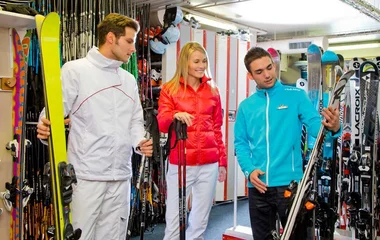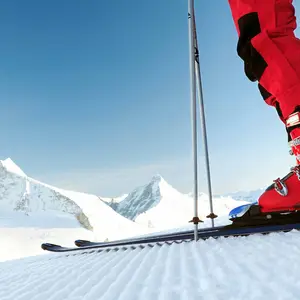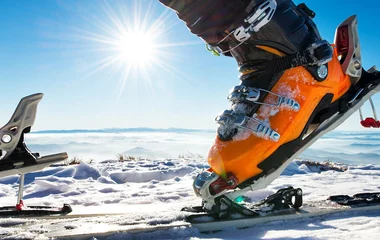Ski bindings are specially designed to release your foot if enough force is applied. This safety feature will save you from twisting your foot into awkward positions if you fall over. The setting is called the DIN, ISO or EN setting, depending upon where you are. When you look at your bindings you will see a scale, generally from 1-10 but advanced skis may go much higher. The higher the number on this scale the more force will be required to release the boot from the binding.
The DIN setting takes into account the ability level, height, weight, boot size and age of the skier. Every Club Med ski resort has rental technicians who will ensure that your DIN setting is correctly applied to both skis, so don’t worry if you’re unsure about what’s right for you. We have Rossignol and Solomon skis to hire at all resorts and the equipment is replaced every season to ensure you have the most state-of-the-art gear at your disposal.
If you keep popping out of your skis through no fault of your own then it will simply be that the DIN setting is too low for you. If this is the case then simply revisit the rental technician and ask him to increase it slightly.





